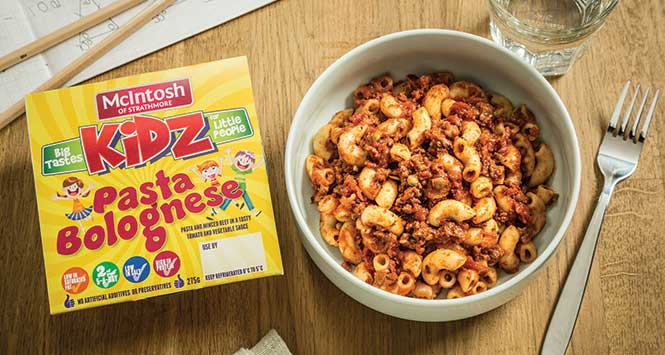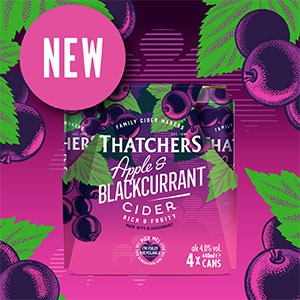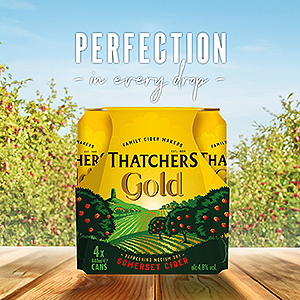SLR is passionate about Scottish brands and we are fully committed to showcasing the very best of Scotland’s larder to the customers of our Woodlands Local store.
Working with a number of key partners, our convenience store will be increasing the number of Scottish brands we stock, and through specially designed POS, we will look to maximise sales by creating highly engaging stand out on-shelf, highlighting the fact that the products are Scottish and also how far these products have travelled to reach our store.
There are still a number of limited places available to be a partner in this exciting project, so if you are interested in seeing your brand featured in Woodlands Local, and also be covered in the magazine itself, please contact Robert on raitken@55north.com or call him direct on 0141 222 5302.
Scotland is blessed with an array of fantastic home-grown brands and products, many of which are staples in every local retailing outlet in the country. SLR looks at some of the best Scottish brands in the market.
The Scots are a breed apart, it’s often pointed out, and that is certainly true when it comes to the products that Scottish shoppers buy in convenience stores. While the differences between Scottish consumers and their southern counterparts have often been exaggerated, there’s no doubt that the Scots take a certain pride in choosing local, regional and national products.
Fortunately, Scotland is blessed with a fantastic bounty of home-grown brands and products, many of them category-leaders. According to Kantar Worldpanel’s Scottish Brand Footprint 2018, the top 30 Scottish brands make some 34% of their sales by value in Scotland. The fact that Scotland only represents about one tenth of FMCG sales in GB overall demonstrates how loyal Scottish shoppers are to Scottish brands.
We look at some of the brands that are driving footfall, sales and profits in stores across Scotland…
Barr Soft Drinks
Ask someone to quickly name a Scottish brand and nine times out of 10 the answer will be Irn-Bru. It’s the number one Scottish grocery brand with annual sales of over £85m in Scotland and accounting for almost 60% of flavoured carbonates in convenience [IRI, Aug 2018].
Adrian Troy, Marketing Director at Barr Soft Drinks, says: Scotland’s £897m soft drinks category continues to be one of the most profitable categories for convenience retailers, growing to be the second-highest bought category in Scottish convenience after newspapers [IRI, Aug 2018], with Barr Soft Drinks’ brands playing a key role by offering choice, quality and innovation.”
Troy recommends that retailers merchandise all three variants of Irn-Bru to attract shoppers to the fixture, as consumers continue to look for a choice of regular, low and zero sugar products.
Irn-Bru sugar-free is Scotland’s leading low-calorie flavoured carbonate while Irn-Bru Xtra delivers the same taste as the regular version but with zero sugar. It has already generated over £10m worth of additional sales for Scottish retailers since launch [IRI Marketplace].
Not only that, research has confirmed that drinking Irn-Bru makes 89% of Scots feel proud to be Scottish [LVQ Ad Tracking Research]!
The £16m Barr Family range is Scotland’s most popular range of flavours and accounts for 17% of flavoured carbonate sales and is showing strong growth of 20% [IRI, Aug 2018].
Provenance and product benefits are increasingly important to consumers, particularly in relation to water. People are not only looking for water brands they know and trust, they are increasingly conscious about the source of the water, which reinforces the provenance message. Barr’s Strathmore spring water remains a quality, trusted water brand in Scotland, currently growing at 7% [IRI, Aug 2018].
McIntosh
It may surprise some retailers to learn that Scottish superbrand McIntosh of Strathmore is actually the UK’s number one ready meal brand and Scotland’s favourite Mac & Cheese producer.
The brand is part of Strathmore Foods, a business founded in the early 1970s and still owned by the same family over 40 years later. In 2003 Strathmore acquired the ailing McIntosh chilled meal brand, which operated in a category that was almost entirely dominated by retailer own-label products.
Since its re-launch by Strathmore, the brand has expanded to cover ready meals, pastry products and savoury puddings, and has continued to grow year-on-year, with 2018 being no exception.
Julie Nisbet, Managing Director, Strathmore Foods says: “It’s been a great start to the year already for our brand with the launch of our Sausages & Mash in collaboration with Simon Howie and the very popular Spicy Mexicana Macaroni Cheese Pies, but September has been an exciting month for us”.
September saw the brand release multiple new products and sub-brands which now stretches McIntosh across four different retail tiers: the core ready meal range, new premium ‘select’ products, new children’s ready meal brand ‘Kidz’ and Food To Go Pots for customers to grab and go.
Nisbet explains: “Our Food To Go Pots offer a great opportunity for businesses with a food to go area to jump on the success and popularity of the McIntosh of Strathmore brand. Our Macaroni Cheese is the best-selling ready meal in Scotland so giving people the option to purchase this hot, to take away will certainly please your customers.”
The first of the company’s ‘select’ range to hit shelves was a McIntosh Select Hot Roast Scottish Salmon Pasta and the brand is also releasing a range of children’s meals which is the first of its kind for a Scottish ready meal brand. The range includes six different product varieties: Cottage Pie; Macaroni Cheese; Pasta Bolognese; Sausages, Beans & Mash; Scottish Stovies and Tomato & Pulses Pasta.
Recent Kantar market data demonstrates that the McIntosh brand is growing at 12% YOY, more than three times the rate of the total chilled ready meal market in Scotland.
Nisbet concludes: “I truly believe a lot of this success is down to our ability to understand what our Scottish customers are looking for and provide them with just that. We pride ourselves on our ability to really get to know our customers and I think this is important for all Scottish brands to consider.”
Tennent’s
If it’s not Irn-Bru that shoppers mention when asked to name a Scottish brand then you can be pretty sure it’ll be Tennent’s that comes to mind for them. The iconic Glaswegian brewer has long enjoyed legendary status in the Scottish off- and on-trade sectors, despite the repeated attempts of deep-pocketed global brewing giants to try to muscle their way into the Scottish market.
Tennent’s is working hard with retailers to help them attempt to cash in to the opportunities that may exist with Minimum Unit Pricing (MUP) in place. Off Trade Sales Director Norman Loughery comments: “We commissioned a detailed consumer research ahead of MUP’s implementation. This highlighted a range of opportunities for independent retailers to consider.
“Under MUP there is no pricing benefit to purchasing alcohol in supermarkets for shoppers. We therefore expect, over time, a shift in consumer habits that will see drinkers purchasing smaller size packs, as well as purchasing more frequently. With this in mind, independent retailers are likely to see an increase in consideration of alcohol from shoppers, providing them with an opportunity to drive purchase, particularly as our research shows that consumers view a ‘convenient location’ and ‘good range of products’ as the most important considerations for shopping after price.”
The research also highlighted that most shoppers are likely to spend the same amount on alcohol, with key price points that retailers should look to hit being £5, £10 & £15.
“Packs crossing these thresholds are likely to suffer disproportionate volume losses,” advises Loughery. “No price incentive on large packs will see their removal with small and mid-packs becoming key to category sales. Without the ability to use price to differentiate themselves from market leading products, weaker brands are likely to lose out; we recommend rationalising slow sellers and weaker performers in order to dedicate sufficient space to selling Scotland’s favourite brands – like Tennent’s Lager and Magners Cider.”
With no ability to discount below the Minimum Unit Price, an increased focus on what the consumer values, will be crucial for retailers. Over half of beer and cider is consumed (in part) on the day of purchase. By maximising chilled space on best-selling packs, retailers will sell the products Scots are looking for, chilled and ready for (near) immediate consumption. This will improve perceived value and entice consumers to come back time and time again – particularly over the coming festive period.
- Irn Bru
- Grahams
- McLelland
- Baxters
- Bells
- Tunnocks
- McIntosh
- Barrs
- Malcolm Allan
- Halls
- Scotty
- Mackies
- Kettle Foods
- Simon Howie
- Rowan Glen
- Tennents
- Highland Spring
- Bartlett
- Border Biscuits
- Nairns
- Patersons
- mac b
- Wiseman
- Famous Grouse
- Scottish Blend
- Glens
- Genius
- Crawfords
- Scotts
- McEwans
Source: Kantar Worldpanel Scottish Brand Footprint 2018
Hamlyns of Scotland
The increased focus on healthy eating, and the huge trend for overnight oats has played right into the hands of Scottish favourite brand Hamlyns of Scotland. The trend has led to growth of the category meaning that porridge is no longer just for the colder months, but is enjoyed all year round.
The Hamlyns of Scotland brand of porridge oats and oatmeal continues to grow steadily, currently at number 41 in the Kantar Worldpanel list of Top Scottish Food and Non-Alcoholic Drink brands.
A genuine ‘superfood’, porridge continues to be a star performer in the hot cereals sector and Hamlyns is reporting its best ever sales of both Hamlyns Scottish Porridge Oats and Hamlyns Scottish Oatmeal, the latter of which is the brand leader by a mile in Scotland. Both products should be considered a ‘must-stock’ in every store’s cereal aisle.
Hamlyns of Scotland’s Managing Director, Alan Meikle said: “Our main focus continues to be on growing the Hamlyns of Scotland brand within Scotland. Our Scottish Porridge Oats and Scottish Oatmeal are guaranteed to be 100% Scottish from field to mill to finished product, which is important to the growing number of consumers who want to know they are buying a quality Scottish product, and supporting Scottish jobs and Scottish farmers. We already shout about this on our website, and we’re planning to do more about provenance in our winter marketing campaign.”
Earlier this year Hamlyns introduced a new 500g pack of Hamlyns Scottish Oatmeal particularly aimed at home bakers. In many stores, this has resulted in Hamlyns Scottish Oatmeal being dual ranged in both the cereal and home baking aisles.
John Kerr, Director of The JFK Partnership, who have responsibility for Hamlyns sales, said: “The multiple retailers have enjoyed huge success with dedicated Scottish aisles at the store entrance and also highlighting Scottish products throughout the store. Larger independents should consider something similar where space allows. Alternatively, add a Saltire to the shelf to clearly highlight a products’ Scottish provenance.”
Lees of Scotland
According to Sheevaun Thomas, New Product Development Manager at Lees of Scotland, provenance is critical to the success of the Lees brand: “As consumers we have become increasingly conscious of only buying products when we can be confident that it is coming from either a trustworthy or known source, which is why provenance, now more than ever, has become a huge key trend driving sales and profits across Scottish convenience stores.”
Lees is a well-known Scottish brand that has seen its sales continue to increase, driven by consumers who are keen to buy local quality products, believes Thomas. “But it’s not just Scots that retailers should be targeting,” she says. “Tourists from all over the world have an affinity with Scottish brands, which should be a key focus for c-stores when stocking products. Outlets that attract a high number of tourists should be looking to stock home-grown brands, such as Lees Scottish Macaroon or Tablet, when filling their shelves.”
For provenance to remain a driving factor, however, it must be backed up by innovation and creativity in product development, adds Thomas. In other words, it not just down to being Scottish but also to delivering high quality, innovative, tasty products that meet the demands of modern consumers.
She concludes: “Consumers want to know that we as a brand can not only provide the products that they have grown to love, but offer something new as well. For example, this year we will be launching our 8-pack Snowy Snowballs for the winter and Christmas season, and our 12-pack Lees Mini Snowy Snowballs as a response to changing consumer purchasing trends.”
Thomas recommends that retailers tap into this growing market for Scottish brands by ensuring they stock a range of home-grown brands that consumers instantly recognise and trust, and try grouping them together in an eye-catching display that will draw consumers in.
Cross-category promotions are also a good idea and are very simple to implement. Retailers can pair up snacking packs of Lees Jam Teacakes with hot drinks packs like teas, coffees and hot chocolates to see a quick return in pick up and purchase, for instance.
Paterson’s
No Scottish brands feature would be complete without a mention of the nation’s favourite shortbread, Paterson’s [Kantar, Jun 2018]. The iconic company’s journey from a husband and wife team selling home-baked oatcakes in Rutherglen to becoming one of our country’s best known independent food companies would have been beyond even the wildest dreams of Mr and Mrs Paterson as they started out in 1895.
The success is built on a simple formula – high quality food from clean, sustainable ingredients – and, with 48% branded share, Paterson’s Shortbread is the nation’s favourite shortbread brand and a must stock this Christmas.
Consumer demand for shortbread is at its highest over Christmas, with over 50% of total category sales taking place in the 12-week festive season. Paterson’s Shortbread’s famous great taste and great value offer makes it perfect for every occasion and use point, from price-marked cello packs for impulse snacking, to cartons and larger assortments for everyday and gifting. Paterson’s is the perfect choice for retailers looking to add great taste, great value and leading brands to their category this Christmas.
Scotland’s producers head to London
Nineteen of Scotland’s top food and drink producers headed to London last month to show their wares at the Speciality & Fine Food Fair during Scottish Food & Drink Fortnight.
Over 9,000 buyers from retail, catering and wholesale attended the show to discover new Scottish products in one place under the ‘Scotland, a Land of Food and Drink’ pavilion.
Lucy Husband, UK Market Development Director at Scotland Food & Drink, said: “Trade exhibitions are an important part of companies’ sales strategy and presenting under the Scotland, a Land of Food and Drink pavilion is highly valued by our exhibitors. The strong regional presence enables companies to showcase their products and businesses to a wide range of UK and international buyers from a number of speciality sectors in one place.”







